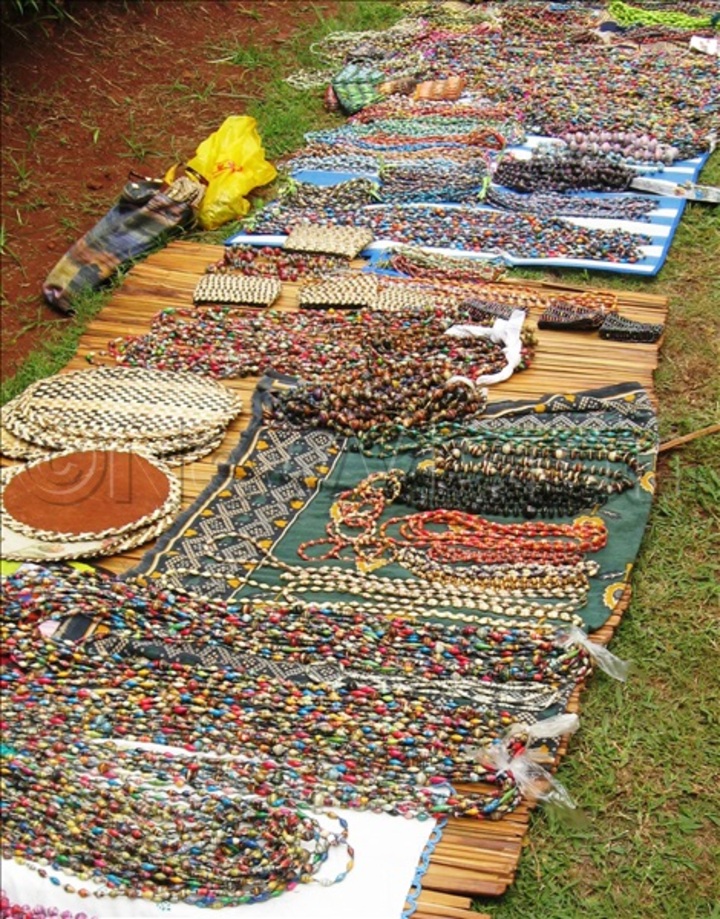Stay-home mothers gain financial liberation using personal skills
“They form groups and each does or crafts something they are skilled in. Those who are not skilled learn from others,” says leader of women.
Stay-home mothers are commonly associated with such daily errands as fetching water, splitting firewood for preparing meals, washing clothes and other house chores.
One such stay-home mum is Eunice Atyongeire, a resident of Namengo village in Buikwe district.
Every morning, she has an unwritten work schedule that she follows faithfully. How she achieves the daily targets depends on her personal execution plan.
What matters is that at the end of the day, Atyongeire is expected to have met all her goals as a house wife. She does this, without expecting any financial pay from her husband.
Atwongeire has been doing this since 2010 but in 2018, she realised she was financially handicapped and decided to change her situation.
In that dilemma, she started thinking of what she could do to liberate herself from poverty.
She noticed she was good at cooking, but didn't know how to use her cooking skills to earn an income.
Atyongeire shared her idea with friends, asking them how she could turn her cooking skills into a money-making project.
She wanted to start a restaurant near my home but she didn't have the capital, so a friend suggested to her that they form a group of women who help cook at village functions.
To her this was a good idea. She knew she would do her daily home errands and still fix time to do the cooking work if need arises.
Since she was a good cook, she shared some of her cooking skills with other women and whenever they heard that there was a funeral, party or public gathering around their village, they quickly organized and participated in the cooking to market themselves.
That is how they gained public notice and slowly people started hiring them to cook at different village functions.
Today they call their group Yesu Amala Caterers and that's how they have managed to earn an income through combined efforts.
The charges
They charge sh1m for more than 100 people and for a number less than that, the cost is negotiable. Their group has 10 women who share the income equally.
Experts say stay-home mothers in rural and urban areas have learnt to think out of the box and have come up with ideas that they exploit either individually or as a group to earn an income.
Making jewelry/weaving
Joyce Nangobi, the director of Slum Women Initiative for Development in Jinja, notes that women are using their hands-on skills to earn a living.
"They form groups and each does or crafts something they are skilled in. Those who are not skilled learn from others," she reveals.
"At the end of each activity, the women carry out collective marketing of their products. After selling, they share the money equally but some save to grow their business," she explains.

Making charcoal briquettes
Nangobi adds that today, stay-home mothers have also mastered the art of saving money by making charcoal briquettes from rubbish.
"These women create time and collect rubbish from their neighbourhoods, which they use to make charcoal briquettes. They do this in a group and collect money to rent a place for marketing their briquettes," she notes.
"The charcoal briquettes are more paying than the ordinary charcoal. Through better marketing, the women are able to earn an income which they share among themselves," she adds.
Community washing
Irene Mbabazi, a social worker and leader of a women's group - Centre for Tomorrow - notes that stay-home mothers have also decided to use their hands to earn an income.
They form groups, especially in urban areas and visit different places such as hospitals and universities to wash clothes for people at a fee.
"Depending on how hectic the work is, they divide themselves in small groups and work together to accomplish the task at hand very fast. At the end of the day they are paid for their service and they return home with some money for them to survive on," says Mbabazi.
Collective farming /digging
This is common in the villages where women form groups and they work together to dig in peoples gardens for an income.
Nangobi notes that such women are paid per day worked and since they work in a group, it takes them a few hours or minutes to accomplish a task at hand. Such women are able to cater for their family needs.

Backyard gardening
Maria Nakanwagi, a leader of Women in Action for Economic Empowerment, a women's group in Kawempe, notes that stay-home mothers have embraced backyard gardening.
Here, they carry out the different gardening skills from their backyards and many are already gaining from it.
Nakanwagi notes that in their backyards, women are able to grow different food crops, spices and herbs. Some grow different foods such as tomatoes, mushrooms and eggplants.
She explains that when the women harvest these things, they sell them as a group and they share the money amongst themselves.
Some even form savings groups, where they save money and when it accumulates, they start up businesses which benefit every group member.
"That way, they get their income and never admire salary earners, "notes Nakanwagi.
She adds that many have also embraced rearing birds, pigs and goats in their backyards. All these bring in money which help women improve their financial status.
Impact of such practices
Women activists say that such financial practices have reduced on the level of gender-based violence in homes.
Florence Akol, a gender-based violence activist at Action Aid, says that when a woman has an income-generating activity, she has little to worry about.
She will be sure of her children going to school, her children having a meal and she will also cater for her other needs.
Akol believes that such a woman will not stress a man so much. The fact that she mingles with other women and socializes, she will have a chance to be told what to do incase her rights are violated and this will empower her with some skills to control the way people treat her.
Akol notes that it is time for women to up the fight against violence and embrace all forms of women empowerment so that their rights as women are never violated by men.